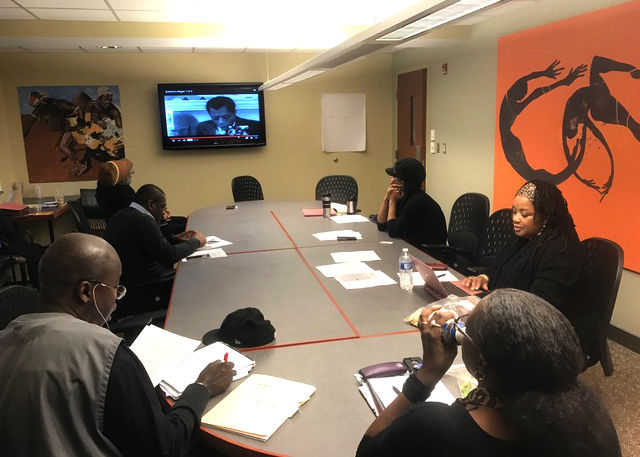Kent State faculty discuss oppression
A panel of Kent State faculty members held the second anti-oppression training workshop of the month on Wednesday, Feb. 15. The focus was action as it relates to oppression. The first was held on Feb. 1 with a focus on terminology.
The workshop was held by the Institute for African American Affairs and hosted by Debra Calhoun. The panel gathered in Oscar Ritchie to discuss approach putting an end to oppression, specifically in the Kent community.
Eight faculty members were a part of the discussion: Amoabo Gooden, Babacar M’Baye, Debra Calhoun, Felix Kumah-Abiwu, Mwatabu Okantah, Asantewa Sunni-Ali, Cinnamon Small and Linda Piccirillo-Smith.
The workshop began with Calhoun’s remarks about racism.
“How do we figure out approaches to end oppression within our colleagues?” Calhoun said.
With the current amount of hate crime and speech, Calhoun said, “the future of our society scares me.”
Calhoun questioned if Kent State faculty and staff have the necessary education and resources to promote anti-oppression.
“I don’t have time to be teaching people who know better,” Associate Professor Okantah said.
The panel agreed that not all faculty at Kent are easy to reach out to.
“It’s not as genuine if they really do not mean it because it’s what’s being said discreetly that is really the problem,” Calhoun said. “We need those colleagues who are not afraid to let someone know they are saying something inappropriate.”
With that being said, the panel discussed strategies they can begin to implement, like focusing on the students.
“This generation is the new demographic,” Okantah said. “It gives me hope when I see the amount of diversity of students taking Black Experience.”
Gooden, chairperson of Pan-African Studies, agreed, citing an experience she had with one of her students.
“A few years ago in my ‘Black Experience’ class, I had a student admit in class that his first time talking to a black person was a year ago, and the only thing he knew about black people is what he saw on BET,” she said.
Gooden said she was happy the student shared that in the classroom and not with friends, which showed the growth of the student by being enrolled in the class.
Associate professor M’Baye began discussing ideas and books they could implement in their course. They watched a brief clip from the 1968 documentary “Baldwin’s Nigger,” a film about oppression and the civil rights movement.
The panel agreed that the first step would be to find faculty who are not of color who care.
As the workshop was coming to an end, the panel agreed on having another conversation and inviting faculty who they know will step up and make a difference.
Malcolm Murray is the Colleges of Business and Technology reporter, contact him at [email protected].



